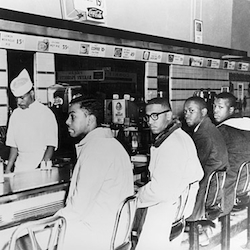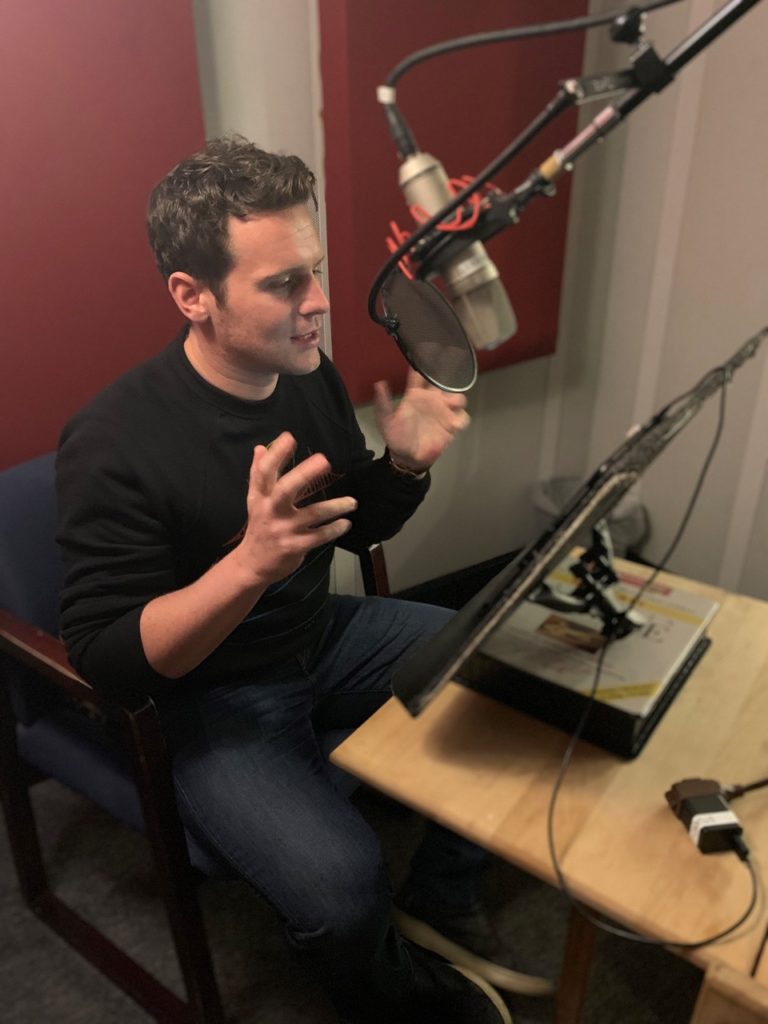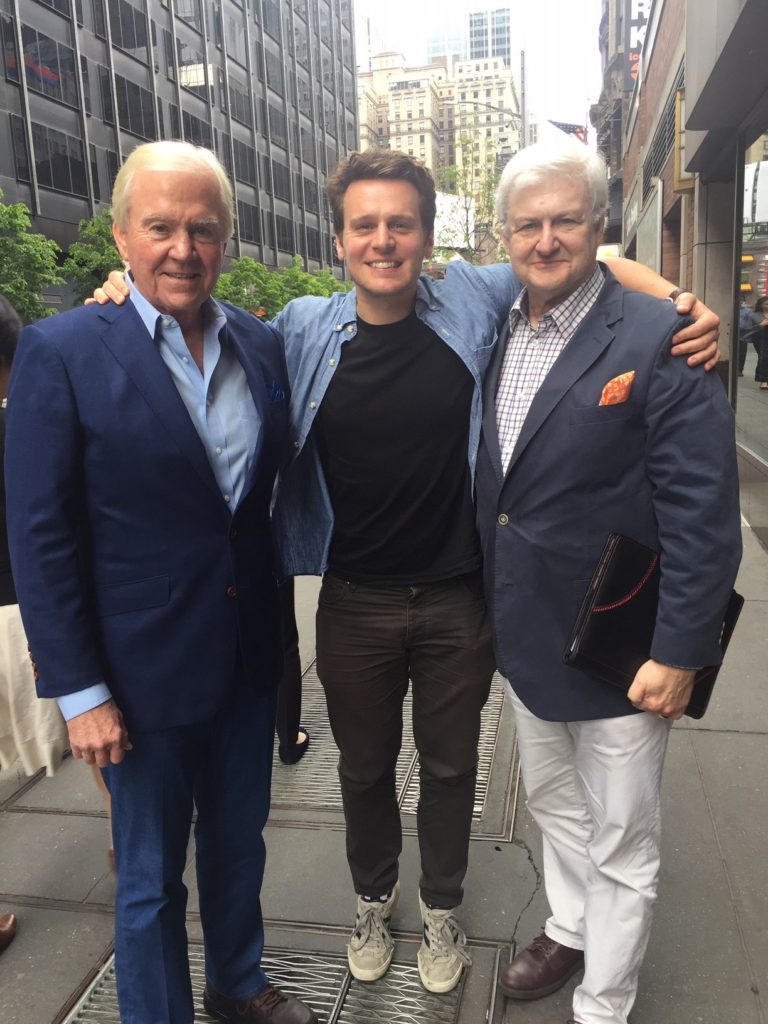Last Thursday, Franklin McCain passed away at age 73. Not many people knew his name, and the most courageous act of his entire life was ordering lunch. But that act took more courage and character than the vast majority of us will ever be called upon to demonstrate.
Because, you see, Franklin McCain was one of the Greensboro Four.
One Sunday night – January 31, 1960, to be exact – Mr. McCain and three other African American freshmen at the Agricultural and Technical College of Greensboro, North Carolina, decided it was time to take a moral stand against the injustice and inequality they saw all around them.
The next afternoon, McCain, Ezell Blair, Jr., Joseph McNeil and David Richmond, walked a mile to the Woolworth store at the corner of Elm and Market Street, went in and each purchased school supplies and other items without difficulty. Having established their legitimacy to be in the store, they went over to the lunch counter and sat on four adjoining schools. They had already considered the possibility that their actions could land them “in jail for a long, long time,” or “back to campus. . . in a pine box.”
Their initial order wasn’t complicated – only coffee and donuts. They waited. And waited, and waited, knowing they would not be served. A number of white customers derided them – although at least one white woman congratulated them – and a policeman called by the store paced behind them, gripping his billy club and waiting for the least provocation. But there was none. The Greensboro Four were dedicated to patience and nonviolence.
They asked politely why Woolworth was prepared to take their money and serve them at one counter, but spurned them at another. They never received a response, though the answer was obvious and imbedded in the odious heart of the Jim Crow laws and way of life that permeated the South.
They came back the next day, and the next. By the third day, more than 300 others, some of them white, had joined them.
They never did get served. But their heroism inspired many others to duplicate their actions in more than 50 cities in 13 states, inspired a nation and empowered the burgeoning Civil Rights movement. By July 25, the Greensboro Woolworth lunch counter had been integrated. Before the year was out, the Student Nonviolent Coordinating Committee had been established. And today, the stools and section of the Woolworth lunch counter at which the Greensboro Four sat reside in the Smithsonian.
Mr. McCain earned a degree in chemistry and biology and worked professionally as a chemist and sales representative for the Celanese Corporation. He and his wife Bettye remained active in education and social justice throughout their lives.
Here at Mindhunters, Inc., we generally take a dim view of violating the law or creating purposeful provocation. But sometimes – and when is often obvious – it is necessary to violate the law in order to achieve true and lasting justice.
Thank God for the courage, grace and dignity of the Greensboro Four and all of the other seemingly ordinary, yet actually extraordinary, men and women of the Civil Rights movement who made the United States a far better place than it had ever been. They did as much as anyone since the Civil War to challenge the Original Sin on which this nation was founded.
Reflecting on McCain’s passing, Ezell Blair, now known as Jibreel Khazan, told a local newspaper, “Frank would say we didn’t want to set the world on fire, we just wanted to sit down and eat like everybody else. We wanted to be included in the round table of humanity.”
They certainly achieved that. And we all stand on the shoulders of giants as a result.




























I was so moved by this article. I remember about twenty years ago travelling around the Northern Territory of Australia and feeling totally appalled that the bars were sectioned into black and white bars in certain towns. Thank you for this post and ensuring that Franklin McCain’s courage and the Greensboro Four’s story continue to reach people around the world.
Mr. Olshaker,
What a wonderful article. Even being a lifelong student of history, I still have a difficult time imagining/understanding that such things took place in this country in the 1960’s!
I wasn’t around in the 60’s, but what a time it must have been! As I stated earlier I’ve had a passion for history my whole life, with a particular emphasis on the Civil War. I can’t help but think of what would have happened had Lincoln lived to complete his second term in office. Not to get sidetracked, but I’ve always thought he would have saved this country a century of just this type of difficulty — ie: Jim Crow laws, the KKK, even women’s rights, all might have been implemented during his time. We would’ve been 100 years ahead of ourselves.
Anyway, thanks for another thoughtful article. I had tears in my eyes reading it. You have a beautiful way with a pen (figuratively speaking).
— Jennifer